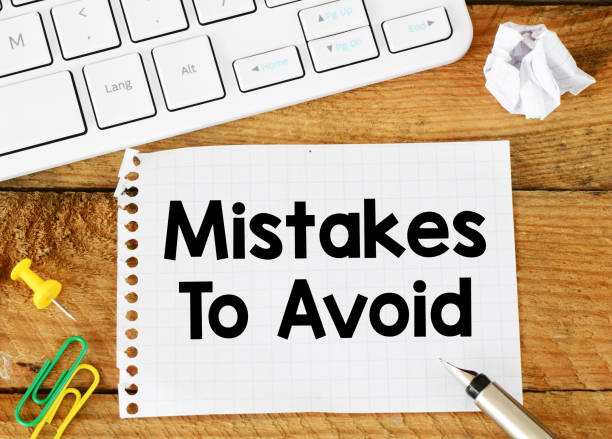Tips for Avoiding Mistakes When Applying for IVA
If you’re struggling with overwhelming debt, an Individual Voluntary Arrangement (IVA) could be a life-changing solution. However, the process of applying for an IVA can be complex, and it’s easy to make mistakes that could delay or even prevent your application from being approved. Whether you’re a pensioner, retiree, or any UK citizen looking for a way out of debt, understanding the common mistakes during the IVA application process is essential for a smooth and successful outcome.
In this blog, we’ll share tips on how to avoid common pitfalls when applying for an IVA, ensuring that you’re on the right track to debt relief and financial freedom.
1. Failing to Understand Your Eligibility
One of the most common mistakes when applying for an IVA is not understanding the eligibility requirements. To qualify for an Individual Voluntary Arrangement (IVA), you generally need:
- Unsecured debt of at least £6,000
- Debts owed to two or more creditors
- The ability to make regular monthly payments, usually starting at £70 or more
- A permanent residence in England, Wales, or Northern Ireland (IVAs are not available in Scotland, but alternatives like Trust Deeds may apply)
Tip: Ensure you meet the eligibility criteria before starting the application process. If you’re unsure, contact an expert at Apply for IVA for a consultation.
2. Not Disclosing All Your Debts
Another common mistake is not being transparent about all of your debts. It’s crucial to disclose every creditor and the total amount owed when applying for an IVA. Failing to do so can lead to complications or a rejection of your application.
Tip: Gather and list all your debts, including credit cards, personal loans, store cards, and utility arrears. An experienced insolvency practitioner (IP) can help you assess your financial situation comprehensively.
3. Overestimating Your Ability to Make Payments
Underestimating the amount of money you can realistically pay towards your debt each month is a common mistake. If your payments are too high and you cannot keep up with them, your IVA could fail. On the other hand, if your payments are too low, your creditors may reject your IVA proposal.
Tip: Be realistic about what you can afford. Work with a professional who can help you create a sustainable repayment plan that fits your budget. An IVA should relieve the stress of debt, not create additional financial pressure.
4. Not Understanding the Impact on Your Credit Rating
While an IVA can be an excellent solution to clear debt, it will have a significant impact on your credit rating. It will remain on your credit file for six years, making it harder to access credit during this time.
Tip: Understand that the impact on your credit score is temporary. Once you’ve completed the IVA and written off any remaining debt, you can start rebuilding your credit by following smart financial habits and maintaining on-time payments.
5. Ignoring the Potential Impact on Your Assets
If you own significant assets such as your home or car, an IVA could affect these. Depending on the terms of your IVA, you may need to release equity from your home to satisfy creditors. This can sometimes lead to uncertainty or confusion about your financial situation.
Tip: Be prepared to discuss your assets with your insolvency practitioner. If you’re a pensioner or retiree, ensure that the IVA terms take your personal circumstances into account. If needed, your IP may be able to adjust the IVA terms to ensure your essential assets are protected.
6. Not Seeking Professional Guidance
Attempting to apply for an IVA without the help of an experienced insolvency practitioner can be a costly mistake. An IVA is a complex legal agreement, and mistakes in the application process can delay approval or even lead to rejection.
Tip: Always seek professional advice when applying for an IVA. An expert will guide you through the entire process, ensuring that all necessary information is submitted and that you meet the eligibility criteria.
7. Not Considering Alternative Debt Solutions
While an IVA is a good option for many individuals, it’s not the only solution for debt. There are other options, such as bankruptcy or Debt Management Plans, which might be more suitable depending on your circumstances.
Tip: Before committing to an IVA, explore all your options. An insolvency practitioner can help you evaluate the best solution for your financial situation.
8. Not Communicating with Your Insolvency Practitioner
The IVA process requires open communication between you and your insolvency practitioner. Failing to stay in contact or being unclear about your financial situation can lead to complications that may result in the failure of your IVA.
Tip: Keep your insolvency practitioner informed about any changes in your financial situation. If anything significant occurs, such as job loss or unexpected expenses, notify them immediately.
How We Can Help
At Apply for IVA, we specialize in helping UK citizens navigate the IVA application process. Whether you’re a pensioner, retiree, or anyone facing financial difficulties, we’re here to help you every step of the way. Our experienced team will ensure that you avoid common mistakes and help you find the most suitable solution for your debt problems.
Take Control of Your Financial Future Today
If you’re ready to take the first step toward managing your debt and applying for an IVA, contact us today. Our team is here to provide you with the support, advice, and guidance you need to achieve financial freedom and rebuild your life.
#AvoidIVAMistakes #IVASuccess #DebtFreeFuture #UKCitizens #Pensioners #Retirees #DebtSolutions #BankruptcyAlternative #DebtManagement #IVAGuidance #FinancialRecovery #DebtRelief







